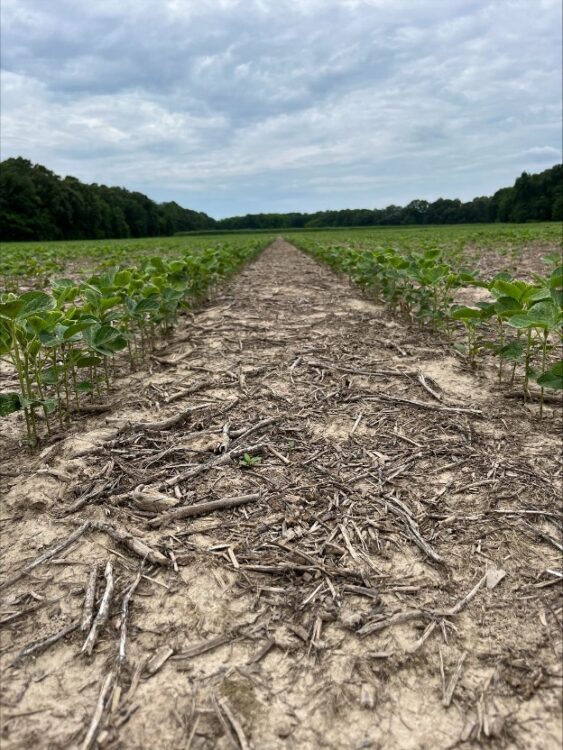High Oleic, Low Linolenic Conversion of Soybean Line with RKN, Frogeye Leaf Spot, and Stem Canker Resistance
The Problem
Soybean meal is a major and preferred feed ingredient for much livestock and poultry due to its superior protein composition. Soybean oil is a versatile product utilized highly in food and industrial applications. An enhanced soybean oil which has extra oleic acid and minimized linolenic acid content is a desirable advancement due to the health benefits such as zero trans-fat because it does not need to be hydrogenated. Furthermore, a soybean line which is resistant to common diseases and infections would boost soybean yields in a time where soybean meal and oil is becoming increasingly needed to meet animal diets and food applications.
The Solution
Researchers at the University of Tennessee have backcrossed four genes (two coding for increased oleic acid, two coding for decreased linolenic acid) into the Ellis soybean line which confers resistance to Stem Canker, Frogeye Leaf Spot, and Root Knot Nematode (RKN), providing both the benefit of high oleic / low linolenic acid content and enhanced disease resistance.

Benefits
| Benefit |
|---|
| Approach generates high oleic acid (>80%), low linolenic acid soybeans without a yield drag. |
| Plants maintain upright growth habit with good resistance to lodging. |
| Plants have resistance to Root Knot Nematode infection, Stem Cankers, and Frogeye Leaf Spot. |
| Increase in both seed oil and protein concentrations over conventional soybean lines. |
More Information
- Tyler Newton
- Assistant Technology Manager
- 865-974-1882 | cnewto12@tennessee.edu
- UTRF Reference ID: 19062
- Patent Status:

Innovators
Dr. Vince Pantalone

Professor, Department of Plant Sciences, UTK-UTIA
Dr. Pantalone received his Ph.D. in 1995, performing post-doctoral research for the USDA and being appointed as faculty for the University of Tennessee in 1998, where he serves as a Professor in the Department of Plant Sciences as well as a project leader for the Soybean Breeding and Genetics Program. His research centers on targeting genetically improved germplasm and new cultivars with enhanced productivity, disease resistance, herbicide tolerance, and tolerance to biotic and abiotic stresses. Dr. Pantalone has published his work in a number of journals (such as the Journal of the American Oil Chemists’ Society), for a number of conferences (such as the Soybean Breeders Workshop Conference and the American Society of Agronomy Conference) and is the holder of three United States Patents.
Read more about Dr. Vince Pantalone